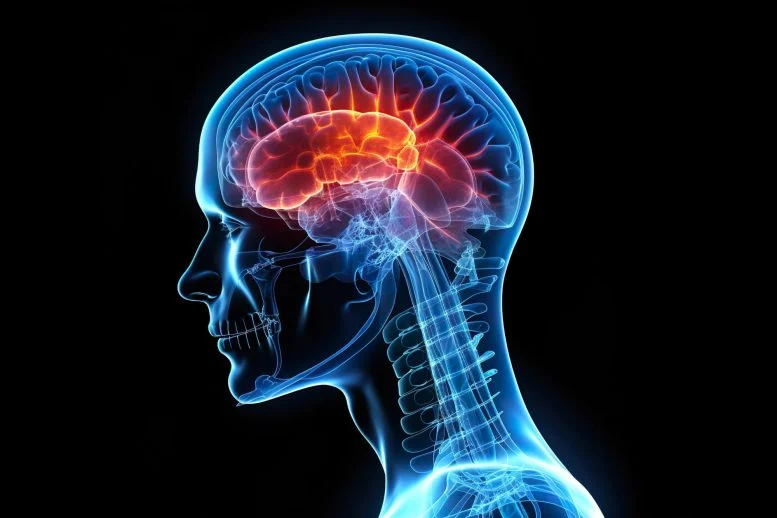November 24, 2024 – New research from the McWilliams Lab at the University of Helsinki has uncovered an exciting discovery about the aging process in the brain, focusing on the role of mitochondria—the tiny energy generators inside our cells. The study, led by doctoral researcher Anna Rappe, MSc, challenges previous assumptions about brain aging and introduces midlife as a critical period for maintaining brain health.
Mitochondria play a crucial role in cellular health, and when damaged, they are removed through a process known as mitophagy. This recycling mechanism is essential for maintaining proper cellular function, particularly in long-lived cells like those in the brain. Impaired mitophagy has been strongly linked to neurodegenerative diseases such as Alzheimer’s and Parkinson’s, highlighting its potential as a target for new drug development.
Rappe’s team discovered that mitophagy in the brain is far more dynamic than previously believed. By studying different brain regions and cell types in aging mice, the researchers found that mitophagy levels increase in certain areas, such as the region responsible for movement, as the animals age. However, in cells related to memory, mitophagy rises initially before sharply declining in older age. These findings suggest that midlife is a pivotal point for brain aging, where changes in mitophagy can either help sustain brain function or contribute to the onset of neurodegenerative conditions.
One of the most striking discoveries of the study was that some lysosomes, which are responsible for breaking down cellular waste, lose their acidity with age. This finding mirrors changes observed in models of Alzheimer’s disease, suggesting that the aging brain’s recycling process might be a factor in the development of neurodegenerative disorders. These results challenge the long-standing assumption that mitophagy simply declines with age and reveal a much more intricate and variable process in longer-lived mammals.
This study marks a significant step forward in understanding brain aging. Previous research had largely focused on short-lived species like yeast and worms, where mitophagy was found to decrease over time. However, applying this model to the aging mammalian brain has proven challenging due to the complexity of brain tissue. With the development of advanced research tools, including mouse genetics, optobiology, and cutting-edge imaging techniques, Rappe’s team was able to track mitophagy across different brain cell types, providing a new perspective on brain aging in mammals.
Associate Professor Thomas McWilliams, who supervised the research, emphasized the importance of these findings for understanding neurodegenerative diseases. “Mitophagy does decline in shorter-lived species, but longer-lived mammals, like humans, have evolved distinct mechanisms to cope with the challenges of aging. Our research shows that mitophagy in the aging brain is dynamic and suggests that midlife is a critical window for preserving brain function,” McWilliams said.
The implications of this work are far-reaching, as understanding the role of mitophagy in aging could open new avenues for treating neurodegenerative diseases. With current therapies failing to produce significant results, McWilliams and his team are hopeful that their research will provide new insights into potential treatments.
“We are excited by these findings and are committed to furthering this research, particularly in collaboration with clinical partners, to translate these discoveries into human applications. We hope our work can serve as a roadmap for the development of therapies aimed at protecting brain health,” McWilliams added.
This groundbreaking study has garnered significant recognition within the scientific community. Anna Rappe has received several prestigious awards for her work, including the 2024 EMBO Journal Best Poster Prize and recognition at the 2024 Nordic Autophagy Society Conference and 2022 FENS Forum, Europe’s largest neuroscience conference.
The team’s work is ongoing, with further research funded by a 1.12 million EUR grant from the Jane and Aatos Erkko Foundation, aimed at exploring human-specific autophagy mechanisms.
The study, titled Longitudinal Autophagy Profiling of the Mammalian Brain Reveals Sustained Mitophagy Throughout Healthy Aging, was published in The EMBO Journal on October 4, 2024.
As the world’s population continues to age, understanding the processes that maintain brain health over a lifetime will be critical for preventing and treating age-related neurodegenerative diseases. The McWilliams Lab’s work offers hope for a future where the brain’s recycling systems can be harnessed to keep our minds sharp well into old age.
Reference:
“Longitudinal autophagy profiling of the mammalian brain reveals sustained mitophagy throughout healthy aging” by Anna Rappe, Helena A Vihinen, Fumi Suomi, Antti J Hassinen, Homa Ehsan, Eija S Jokitalo and Thomas G McWilliams, The EMBO Journal, October 4, 2024. DOI: 10.1038/s44318-024-00241-y












